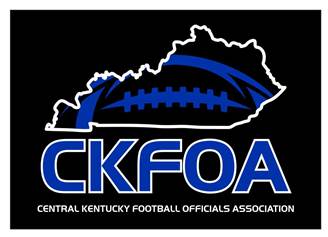FROM http://www.khsaa.org
07/17/19- Heat and Humidity Reminders for Member Schools Representatives
With temperatures rising across the state and predictions for record temperatures in the coming days, now is a good time to remind all of our school administrators and coaches of the requirements of the Heat Index and Heat Illness prevention program. The complete program is detailed at https://khsaa.org/common_documents/handbook/policies/policies-heatilllnesspolicy.pdf
No game or plan for a game or practice for a game is worth short-cutting this required procedure that is now more than fifteen years old. Nothing about the program has changed with the exception of the inclusion of the ability to use the wet bulb globe to monitor conditions, but with the turnover in coaches (and administrators) perhaps a few heat index and illness reminders are helpful:
- Heat index requirements and restrictions apply (and have always applied) to outdoor and indoor sports. In many cases during the summer, indoor practice areas (including gymnasiums) are set to be electronically controlled in terms of temperature and coaches must monitor conditions to ensure compliance.
- While the gold standard for heat index measurement is the wet bulb globe, the KHSAA has adopted the use of the digital sling psychrometer as the alternative measurement instrument for heat index as the next best available and most cost-effective alternative. This is an accurate measurement of the heat index at the competition or practice site.
- A certified wet bulb globe may also be used but users should review the activity alternation chart for differences in the devices.
- The measurements are to be taken ONLY using the digital sling psychrometer or wet bulb globe. There is no website, phone app or other computer programs that can substitute and allow a school to remain in compliance. Only on-site readings are valid.
- The readings are to be taken at the exact location of the practice. There were reports in the early years of people taking readings under the shade of a stadium, an exterior hallway, under a nearby tree, etc. This does NOT give accurate information. The first and only accurate place to take the reading is the specific competition/practice area where the activity will occur. This is especially important with the proliferation and expansion of artificial playing surfaces where the heat is increased by the layer below the carpet.
- Specific to football, a reading of above 99 degrees heat index (or 89.9 on the wet bulb globe) requires the removal of the helmet and all other protective gear in football. Equipment may not be worn until the heat index gets back to 99 or below (or below 89.9 on the wet bulb globe. A reading of 95 to 99 requires protective equipment to be removed while not involved in the contact or drill at that moment.
- In all sports, everything stops if the heat index is above 104 (or 92 on the wet bulb globe). In sports where protective gear is required for specific players or positions, the stoppage occurs at above 99 (or 89.9 on wet bulb globe). This would include football, baseball, softball, field hockey, and lacrosse.
- In all sports and sport-activities, if the heat index is 94 or above, even if the activity can continue, mandatory water and rest breaks (out of the direct sun) are required at a minimum of 30-minute intervals.
Regardless of temperature, emergency action plans are required to be in place and practiced. It would be advisable as preseason workouts get to full speed to be sure all of the equipment has been checked, etc.
- The required procedures include the placement of a cooling tub containing ice and water in an area accessible in the event of an emergency.
- Complete details include size specifications for the cooling tub are on the KHSAA website at https://khsaa.org/common_documents/handbook/policies/policies-heatilllnesspolicy.pdf.
- Without proper planning and the availability of the tub, supplies, and water, the time frame between symptoms and treatment are unnecessarily prolonged.
- This tub SHALL be large enough to place an athlete into the cold, ice and water-filled tub and cool the athlete ensuring that both the groin and armpits are in the cooling ice and water.
- The athlete must be monitored at all times when in the cooling tub, with individuals designated to control the head and neck at all times in case the athlete becomes unconscious.
- The athlete plan should ensure that cooling of an athlete that is showing signs and symptoms of exertional heat illness is begun immediately including the availability of cold, iced towels, etc.
- The fundamental principle is to cool first, transport second. A good example of those principles can be found at https://www.youtube.com/watch?v=X1-g3dVVvaM&feature=youtu.be
A reminder to all those reviewing this post is that adherence to the heat index procedures are required of the middle schools in the Commonwealth per state regulations (702 KAR 7:065).
This post is not intended to be complete and all inclusive. Much of the details and background can be found on the KHSAA website at http://khsaa.org/special-programs/sports-safetysports-medicine/ including the required forms that are necessary to monitor compliance.
